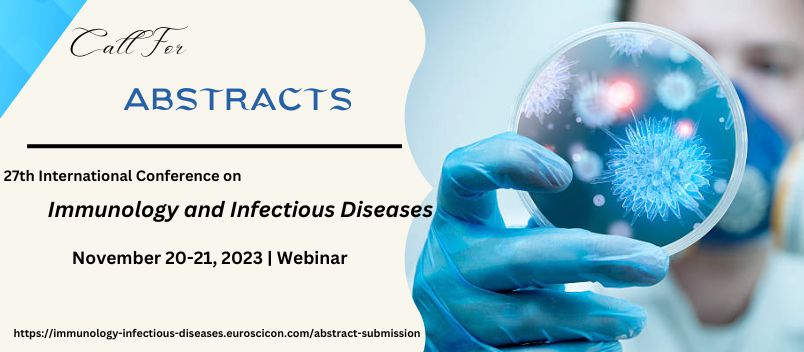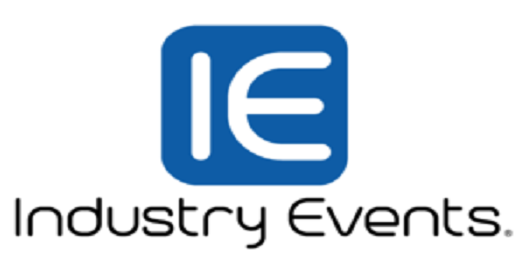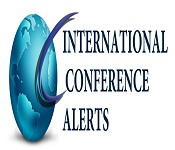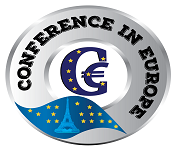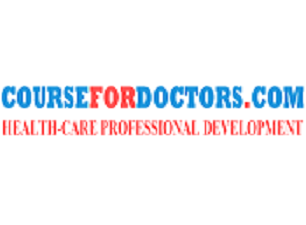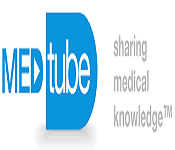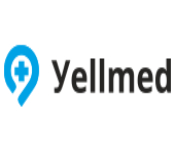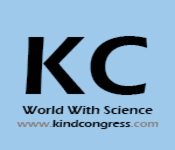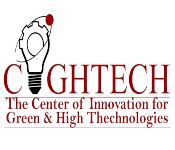Immunology Infectious Diseases 2023
About Conference
The EuroSciCon takes immense pleasure in announcing 27th International Conference on Immunology and Infectious Diseases from November 20-21, 2023 as webinar/online conference. The theme of this year’s meeting is “Researching advances in immunology and infectious diseases" which provides an international platform for discussion of present and future summons in Advancements of immunology in curing the deadly infectious diseases, expertise meeting and review of research. World-leading Immunologists, Pathologists, Microbiologists, Biochemists, Scientists, Doctors and Doctorates will present cutting-edge and practical immunological techniques and methods with accepted evidence and will introduce new and emerging research.
What’s New
Immunology Infectious Diseases 2023 is the perfect platform for the interaction among specialists,directors,professors,medical,surgical, miscellaneous faculties, experts, scientists, reputed research institutes, universities and medical schools and mainly accelerating the scientific discoveries in the field of Immunology, Pathology, Virology and Infectious Diseases around the world.
Global Immunology Market to Reach $74.2 Billion By 2023
The complexity of the immune system has led to some intrinsic obstacles with clinical research, particularly in relation to targeting the right genes, identifying the appropriate patient population and accessing internal tissues for testing. Market access presents a significant hurdle for immunotherapeutic procedures, as many are high cost and do not deliver the measurements required for traditional cost-effectiveness assessments. Despite these restraining factors, The Global Immunology Market is expected to experience continued growth, from $61.5 Billion in 2015 to $74.2 Billion in 2023, at 2.71% CAGR.
Summary:
Immune-mediated deadly infectious diseases are a very common set of chronic disorders that affect 5–7% of world populations. Although they are often disparate in terms of their symptoms and key patient demographics, they are pathophysiological linked, being characterized by disregulation of immune pathways and an inappropriate immune response. Generally, disease-modifying anti-rheumatic drugs, a highly generalized class of systemic small-molecule-based agents, are used in the first-line treatment of these diseases. These are supplemented in many cases by shorter-term glucocorticoid therapy, another class of highly generalized systemic agents.
However, these therapies often fail to elicit an adequate response; a large second-line therapy has emerged in markets, beginning with the approval of Remicade and Enbrel in 1998. This segment largely consists of premium systemic monoclonal Antibodies that are highly commercial and successful with their widespread usage and high cost. Though the patents for many of these mAbs are being expired during the forecast period, the market is expected to experience continued growth.
Scope:
Though the patents for these mAbs are being expired during the forecast period, the market is expected to experience continued growth, from $61.5 billion in 2015 to $74.2 billion in 2023, at a compound annual growth rate of 2.71%.
- What factors are driving the market growth?
- How can the factors limiting growth are overcome?
- Very large pharmaceutical pipeline for immunology, consisting of 1,838 active products is being developed. However, the commercial performance of the products in the late-stage pipeline is expected to be moderate.
- What gaps in the market are being addressed by the most promising of these late-stage pipeline products?
- Several key commercially successful products, including Humira (adalimumab) and Remicade, are due to lose patent protection in the forecast period.
- How will this affect their revenues in this period?
- The key players in the market, all of which are among the top 20 pharmaceutical companies, are expected to maintain their market lead throughout the forecast period.
- What is driving this continued market dominance?
- Who will the new market players be?
Reasons to buy:
This report will allow you to
- Apprehend the present clinical and industrial landscape by considering disease pathogenesis and diagnostic treatment options available at each stage of Infection
- Envisage the composition of immunology market across every indication, in terms of dominant molecule targets, highlighting the key commercial assets and players
- Analyse the pipeline of immunology and stratify its developmental stage, molecular target along with molecule type and with its granular breakdown across key indications
- Acknowledge the growth of patient epidemiology and market revenues for the immunology globally and across the key players and product types
- Laminate the market in terms of the split between generic and premium products and assess the role of product types in treating varied immunological disorders
- Identify industrial opportunities in immunology by analyzing trends in licensing and co-development deals
Sessions and Tracks
1. Clinical Immunology & Current & Future Research
Immunology is a branch of science that covers the study of immune system in all organisms. Immunology plays an important role in the fields of organ transplantation, oncology, rheumatology, virology, Pathology, Microbiology, bacteriology, parasitology, psychiatry, and dermatology.
Clinical immunology is the study of diseases caused by disorders of the immune system (failure, aberrant action, and malignant growth of the cellular elements of the system). It also involves in other diseases, where immune reactions play a part in the pathology and clinical features.
- Immunological aspects of endocrine diseases
- Immunological techniques
- Immunological aspects of cardiac diseases
- Immune regulation
- Immunological aspects of allergy and anaphylaxis
- Immunology of HIV infections
- Immunological aspects of renal diseases
- Immune-mediated neurological syndromes
2. Molecular Immunology
Molecular Immunology manages the comprehension of the resistant fame work and how it capacities to shield us from pathogens, similar to microscopic organisms and infections, while in the meantime regarding the innocuous or valuable microorganisms in our conditions. Different systems utilized in Molecular Immunology Antibodies counteracting agent utilize Elisa, Nephelometry and Radioimmunology.
- Immune signal transduction
- Immune calcium signals
- Immune quality control
- Immune protein folding
- Immunological secretion
- Immune endocytosis
- Immune cell motility
- Immune ion channels
- Cell stress response
- Immune cell metabolism
3. Tumor Immunology
Branch of biology concerned with the role of the immune system in the progression and development of cancer is known as Tumor Immunology. The most well know application is Cancer Immune therapy whereas immune system is used to treat cancer. It also be suggested that immunosurveillance primarily functions as a component of a more general process of cancer immunoediting.
Immunoediting induces selection for certain tumor cells, which loose dominant tumor-specific antigens allowing the tumor to progress. It has 3 main phases: elimination, equilibrium and escape.
- Carcinogenesis
- Onco-genomics
- Cancer Immunology & Immunotherapy
- Cancer therapeutic resistance
- Antitumor Effector Cells and Regulation of Tumor Immunity
- Tumor-Associated Antigen & Immunosuppression
- Mechanisms of Tumor Rejection and Modulation of Antitumor Responses
- Pathobiology of Immune System Malignancies
- Chemotherapy, Radiotherapy & Targeted therapies
- Drug Development & Vaccines
- Treatment Approaches for Cancer
- Specific / Non-specific Immunotherapies
- Immuno-Oncology studies
4. Mucosal Immunology
It is the study of immune system response that occurs at mucosal membrane of the intestines, the urogenital tracts and respiratory systems, i.e. surface which are contact with the external environment in healthy states, the mucosal immune system provide protection against pathogens but maintains a tolerance towards non-harmful commensal microbes and benign environmental substance. Since the mucosal membranes are primary contact point between a host and its environment a large amount of secondary lymphoid tissue is found here. The mucosa-associated lymphoid tissues or MALT provides the organism with an important line of defense.
- Gut-associated lymphoid tissue
- Mucosal Vaccination
- Mucosal Immunology of HIV Infection
- Immunoglobulin A (IgA)
5. Transplant Immunology
The study of the immune response that occurs when an organ or tissue is moved (grafted) from one individual to another is known as Transplant Immunology.
- Immunosuppressive agents: Current trends
- Tolerance induction
- Xenotransplantation
- Islet cell transplantation
- Immunocell therapy
- Anti-donor antibodies and current research
6. NeuroImmunology
Branch of immunology that deals especially with the interrelationships of the nervous system and immune responses and autoimmune disorders (as multiple sclerosis) is known as NeuroImmunology.
- Neuro-immune interaction
- Epilepsy
- Autoimmune neuropathies
- Neuro-immunological infectious diseases
- Maternal cytokines in neurodevelopmental disorders
- Neurodegenerative diseases
- Neuro-virology
- Blood brain barrier and diseases
7. Immuno-Dermatology
Immunodermatology studies skin as an organ of immunity in health and diseases. Several areas like Photo-immunology (effects of UV light on skin defense), inflammatory diseases like Hidradenitis suppurativa, allergic contact dermatitis and atopic eczema, presumably autoimmune diseases like vtiligo and psoriasis and finally the immunology of microbial skin diseases such as retrovirus infection and leprosy.
- Cutaneous Dendritic Cells in Health and Disease
- Photo immunology
- Atopic Dermatitis
- Non-melanoma Skin Cancer
- Immunobiology & Immune-Based Therapies
- Drug Eruptions
- Immunodermatology & Viral Skin Infection
- Clinical Dermatology
- Cutaneous T-Cell Lymphoma
- Allergic Urticaria
- Alopecia Areata
- Cutaneous Lupus Erythematosus
- Pemphigoid Spectrum
- Epidermolysis Bullosa Acquisita
- Immunoglobulin Dermatitis
- Advances in Immuno-Dermatology
8. Immuno-Genetics
Immunogenetics is a branch of immunology concerned with the interrelations of heredity, disease, and the immune system and its components.
- Genetic Research
- Vasculitis and Autoimmune Disease
- The Immunogenetics of Neurological Disease
- Bone involvement in Monogenic Auto-inflammatory Syndromes
- Immunoglobulin Genotypes and Cognitive functions
- Mechanisms behind TB, HBV, and HIV Chronic infections
- Immunogenetics and Pharmacogenetics
- Chronic Inflammation
9. Vaccines & Immunization
A biological preparation which provides active acquired immunity to a particular disease is known as Vaccine. Vaccines contain a microorganism in a weakened or killed state, or proteins or toxins from the organism. Vaccines can be prophylactic or therapeutic. The World Health Organization (WHO) reports that currently, licensed vaccines are available for twenty-five different preventable infections. For example, vaccines that have proven effective include the influenza vaccine, HPV vaccine and chicken pox vaccine.
Immunization is an advanced process which triggers the body's immune system to fight against infectious diseases, by the administration of a vaccine. The administration of vaccines is called vaccination. Herd immunity can be when a sufficiently large percentage of a population has been vaccinated.
- Combination Vaccines and Plant Based Vaccines
- Recombinant Vector Based Vaccines
- Age-specific Immune Response to Vaccination
- Therapeutic Vaccination for Auto Immune Diseases
- Vaccines against Vector-borne Diseases
- Vaccination in New-born’s, Pregnancy and the Elderly populations
- Japanese Encephalitis
- Measles, Mumps, Pertussis, Rubella
- Poliomyelitis, Rabies, Rotavirus
- Hepatitis A, B
- Adaptive, herd immunity
- Chicken pox vaccine
- DNA, HPV vaccination
- Veterinary vaccines and Poultry Vaccines
- Cholera, Diphtheria
- Pneumococcal Infections
- Cancer vaccines
- HIV vaccine research
- Influenza vaccines
- Live vaccines
- Meningococcal vaccines
10. Innate Immune Responses
Innate Immunity is defined as an immunity possessed by a group of species or race which is present in an individual at birth prior to exposure to a pathogen or antigen and that includes components such as intact skin, salivary enzymes, neutrophils, natural killer cells, and complement which provide an initial response against infection.
- Anatomical Barriers lupus
- Inflammation
- Neural Regulation
- Immune Evasion
- Pathogen-specificity
11. Immuno-Research & Immunotechnology
Immunology research tends to a fascinating medium for the introduction, understanding and clarification of complex sensible information. Data appears as interpretive blend diagrams, exceptional research articles, symposia, preparations and theoretical structures. The level of argument reaches to the cell immunology, tumor immunology, immunoregulation, immunopathology, auxiliary immunology, molecular immunology and autoimmunity have ensured and microbial restriction including viral immunology, transplantation immunology, Immunoendocrinology, translational immunology, Neuroimmunology and clinical immunology.
- Antibody Engineering & Technology
- Proteomics
- Antigen-Antibody Interactions
- Microarray
- Recombinant Immuno-Conjugates
- Characterization of Lymphocytes
- Immunodiagnostic & Immuno techniques
- Transcriptomics
- Immunological Assay
- Nano-Immunotechnology
- Technology Development and Applications
12. Nutritional Immunology
Nutritional Immunology or Immunonutrition is a newly recognized sub discipline of vast clinical and public health importance. This discipline interrelates seemingly desperate fields of Nutrition and Immunology. Despite of their apparent independence in the immune system cannot function optimally if malnutrition is present.
- Nutrient-gene interactions in the immune system
- Nutrition and immune cell signaling
- Nutrition, immunity and chronic age-related diseases
- White-brown adipocyte plasticity and inflammation
- Immune profiling in metabolic diseases
- Obesity, inflammation and immunity
- Nutrition-inflammation interactions
- Nutritional immunology old challenges & new approaches
13. Reproductive Immunology
Branch of medicine that studies interactions between the immune system and components related to the reproductive system, such as maternal immune tolerance towards the fetus, or immunological interactions across the blood-testis barrier is known as Reproductive immunology.
- Immunological paradox of pregnancy
- Immune cells and cytokines in implantation
- Mucosal immunity
Market Analysis
Infectious Disease Therapeutic Market
The global infectious disease therapeutics market size was valued at USD 46.88 billion in 2016.It is expected to grow at a CAGR of 6.6% during the forecast period. The growing frequency of infectious ailments, increasing expenditure to boost the penetration rate of treatments of these diseases, diagnosis, rising initiatives for creating awareness about treatments and increasing clinical trials are the factors responsible for growth of this market. India and China are both considered to be the fastest growing infectious diseases therapeutics markets. The major companies which play a vital role in the global infectious diseases therapeutics market are, Pfizer, Johnson & Johnson, Merck & Co., GlaxoSmithKline Pharmaceuticals, F. Hoffmann-La Roche, Inc., Auritec Pharmaceuticals, Novartis, Achillion Pharmaceuticals, Eli Lilly and Company, Isis Pharmaceuticals , Gilead Sciences and Sanofi.
Diagnostic Market Research on Infectious Diseases
The infectious disease diagnostic market is studied with respect to four regions such as North America, Europe, and Asia Pacific. Among all of these North America is dominating the whole region followed by Europe. Infectious disease diagnostic market is anticipated to grow during the forecast period owing to the increasing prevalence of various infectious diseases such as, malaria, Lyme disease, fifth disease, TB, HIV/AIDS, viral hepatitis, HAIs,MRSA, STDs and diarrheal diseases. The other vital areas of this market are growing demand of rapid diagnostic technique over existing technique due to long turnaround time and government aided funding. The different methods used for diagnosis are microbiological techniques, clinical laboratory techniques and intensive care medicine.
Infectious disease testing is often prioritized by health care companies and specialists for treating the disease as early as possible. Therefore, testing markets are being likely to be a little less price-sensitive as compared to others.
Infectious disease diagnostic market is segmented on the basis of product, technology, and application. On the basis of technology, the market is split into, molecular and traditional diagnostic technique. The molecular diagnostic technique is classified into INAAT (Isothermal Nucleic Acid Amplification Test), Polymerase Chain Reaction (PCR), NGS & DNA sequencing, hybridization and microarrays. The traditional diagnostic technique is categorized into biochemical characterization, immunodiagnostics and microscopy. On the basis of product, the market is classified into consumables (assays and reagents), software & services, and instruments & analyzers. Among these consumables held the largest market share as of 2013.
Avenues of Infectious Disease Research
Research will also be directed toward patient subgroups, including children, patients with co-infection (HIV/hepatitis or HIV/tuberculosis) and patients infected with drug-resistant forms of a disease. Pandemic preparedness is another factor that will have to be stepped up in the near future. Among vaccines, influenza has the highest market value, with growth in the next couple of years being driven by conversion to quadrivalent vaccines and immunization of the elderly population. Recent pandemics such as Ebola, Zika and influenza have highlighted the fact that no disease can be assumed to not have a global implication.
Learn More
Top most Immunology and Infectious Diseases Universities in World
Immunology and Infectious Diseases Universities in EUROPE:
University of Oxford | Swiss Federal Institute of Technology | University of Cambridge | King’s College London | University of Edinburgh | Swiss Federal Institute of Technology Lausanne | Vaccine Conferences | Infectious Diseases Conferences | Infection Conferences | Immunology Meetings 2019 USA | Immunology Congress 2019 Japan | Immunology Conferences | Clinical Immunology Conferences | University of Bristol | University College London | Maastricht University | Imperial College London | University of St. Andrews | The University of Manchester | Microbiology Conferences | Immunology Conferences 2019 USA | Immunology Conferences 2019 Canada | Allergy Conferences | Cancer Immunology Conferences 2019 Asia | Queen Mary University of London | Immunology Conferences | University of Liverpool | Trinity College Dublin | University of Birmingham | University of Southampton | University of Copenhagen | Newcastle University | University of Glasgow | University of Geneva | University of Zurich | Queen’s University Belfast | University of Groningen | Cardiff University | Technical University of Munich | University College Dublin | University of Warwick | University of Nottingham | University of York
Immunology and Infectious Diseases Universities in USA:
Harvard University | University of California | Johns Hopkins University | Washington University in St. Louis | Yale University | Rockefeller University | University of Oxford | Massachusetts Institute of Technology | Immunology Conferences | Clinical Immunology Conferences | University of Pennsylvania | University of Washington | Stanford University | Emory University | Columbia University | Duke University | University of California | Microbiology Conferences | Immunology Conferences 2019 USA | Immunology Conferences 2019 Canada |
